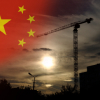Insights
The Future Quality approach to navigating the AI arms race
Realigning fixed income with purpose
Navigating Japan Equities: Monthly Insights from Tokyo (February 2024)
Japan’s reform measures pave the way for an exceptional 2024
Balancing Act-Monthly insights: Multi-Asset Team-January 2024
The US economy continues to look robust, so we have stayed constructive on growth assets and short maturity global credit where yields are attractive. We still believe that the path to 2% inflation in the US is relatively unclear. If anything, our conviction on this point has increased because easier financial conditions may ultimately pave the way for the return of sticky inflation.
Harnessing Change - Monthly Insights: Asian Equity-December 2023
The peaking of interest rates and potentially the US dollar could be a boon for broader markets—particularly those more sensitive to liquidity, countries with more room to ease rates and areas where positive fundamental changes have been overlooked. China’s economy is undergoing a major transition into one that promotes advanced manufacturing, technology, self-sufficiency and higher-end overseas growth. These are areas of our focus.
On the Ground in Asia-Monthly Insights: Asian Fixed Income-December 2023
We expect macro and corporate credit fundamentals across Asia ex-China to stay resilient due to fiscal buffers although slower economic growth seems to loom over the horizon.
Navigating Japan Equities: Monthly Insights from Tokyo (January 2024)
This month we discuss why the equity market is relatively unaffected by the political scandal shaking Japan’s ruling party; we also assess how 2024 could become an inflection point in the country’s “savings to investments” drive.
Balancing Act-Monthly insights: Multi-Asset Team-December 2023
Although we believe that the prospects for the economy remain mostly unchanged, the outlook is softer at the margins, perhaps reflecting the tightening of financial conditions seen during the recent months. Over the past month, however, financial conditions have eased considerably on the assumption of impending rate cuts.
New Zealand markets outlook 2024: the only certainty is more uncertainty
Given the volume of quality defensive companies with relatively high dividend yields, higher for longer interest rates are a significant headwind for New Zealand’s equity markets. Alongside these, the country’s globally-focused export companies will be looking for the global growth story to play out positively, but for the meantime will at least be enjoying a relatively weak New Zealand dollar.
Corporate governance reform points to opportunities ahead in Japan equities
Japan may not be known for quick, sweeping reforms. However, developments in the country’s corporate governance over the last 10 years suggest that once changes are set in motion, they can have a deep and lasting impact, raising the value of its companies and creating investment opportunities along the way.
Global Investment Committee’s outlook
We expect poor 1Q24 returns for MSCI World after the 4Q23 surge, but a more positive trend for the rest of 2024. Regionally, we much prefer Japan in the year ahead. Our view on global bonds for USD-based investors is that they are preferred during much of the 1H, but only marginally attractive in the 2H.
On the Ground in Asia-Monthly Insights: Asian Fixed Income-November 2023
We expect sentiment toward Asia’s bond markets to turn increasingly positive in 2024. We also expect macro and corporate credit fundamentals across Asia ex-China to stay resilient on the back of fiscal buffers, although slower economic growth appears to loom over the horizon.
Harnessing Change - Monthly Insights: Asian Equity-November 2023
Despite short-term negatives, we believe that China continues to offer ample long-term growth opportunities as the country pivots towards advanced manufacturing and technology. Elsewhere, some of the best growth stories globally could be found in India and Indonesia, while Taiwan and South Korea are expected to continue benefitting from a modest upcycle as the semiconductor industry recovers.
Navigating Japan Equities: Monthly Insights from Tokyo (December 2023)
We discuss how a bullish year for Japan equities has brought what was previously out of sight into view and analyse focal points for the market as we head into 2024; we also assess how focusing on efficiency and growth could be the way forward for Japan given its projected drop in the GDP rankings.
Global multi-asset outlook 2024
Our investment themes for 2024 focus on key features of a world in transition. They include higher-for-longer rates, production shortages in natural resources and the search for new sources of productivity. Transitions are never easy, and features of the old world accustomed to low rates may not make it. We believe that some of these old-world features could pose systemic risks as “creative destruction” does not always run smoothly.
Global equity outlook 2024
We are heading into a changing world, where the more recent past can no longer be relied on to guide our path forward. But we are not blindfolded. There are tools we can use to provide a greater degree of certainty. Our Future Quality approach is designed to help us identify franchises that are set to endure.
Global fixed income outlook 2024
We present our 2024 outlook for sustainable fixed income, core markets and credit markets.
Japan equity outlook 2024
We expect 2024 to be a year of domestic consolidation and long-term reform measures, where markets are driven more by Japan-specific events than by global factors. After decades of deflation, we see Japan as finally breaking out of this cycle in 2024, as it enters a virtuous cycle of price increases and wage hikes.
ASEAN equity outlook 2024
We believe ASEAN will offer good pockets of growth and quality opportunities, as well as earnings resilience and protection amid some of the prevailing global macro headwinds.
Singapore equity outlook 2024
We believe that our “New Singapore” narrative focusing on sectors and companies that represent the future of the city-state will remain relevant in 2024. Energy transition has risen to prominence within the New Singapore narrative in addition to data, technology, healthcare, logistics, tourism and food solutions.
Asian equity outlook 2024
Considering that major tech companies are profitable, cash rich and cannot afford to lose out in the highly competitive AI race, spending on high-end computing and neural networks looks set to continue in 2024. This will likely create a lasting boon to many component suppliers (the so-called picks and shovels of AI) across Asia.
Global macro outlook 2024
Much like this report in 2023, global conditions will remain unique and defy a confident overall summary; thus, here are ten predictions on some particularly noteworthy factors.
Asian credit outlook 2024
We expect fundamentals and technical backdrop for Asian credit to remain supportive in 2024. However, valuation is a challenge with current Asian high-grade spreads near historical lows. The myriad cyclical and structural factors driving the major sub-sectors within Asian high-yield credit makes it is difficult to call the overall spread direction in 2024, although the current spread level remains wide and offers room for compression over the medium term.
Asian rates and FX outlook 2024
We expect 2024 to be a year of higher returns and lower volatility for Asian local government bonds as US Treasury yields are seen stabilising. We also see Asian currencies firming against the dollar in 2024 as the Federal Reserve’s rate hike cycle comes to an end.
China equity outlook 2024
For those willing to brave immediate challenges, we believe China will continue to offer long-term opportunities as the country has been working to become technologically self-sufficient and develop high-end technologies on its own in a more challenging regulatory environment.
Japan’s “Show Me the Money” corporate governance: 3Q profit margins near record high
The just-released 3Q CY23 data on Japan’s aggregate corporate profits was a bit mixed, but the overall corporate recurring pre-tax profit margin surged to a record high on a four-quarter average. The non-financial service sector rose to another record high, but the manufacturing sector fell further from its record high.
Balancing Act-Monthly insights: Multi-Asset Team-November 2023
We have held on to our view that the “higher for longer” narrative is not necessarily bad for equities, as robust earnings are supported by a US economy that continues to grow at above-trend rates. However, we are also sympathetic to the de-rating process where earnings look simply less attractive compared to higher rates across the yield curve.
On the Ground in Asia-Monthly Insights: Asian Fixed Income-October 2023
We expect macro and corporate credit fundamentals across Asia ex-China to stay resilient with fiscal buffers, although slower economic growth appears to loom over the horizon.
Future Quality Insights -November 2023-New regime, new learning
The last few quarters have been a good reminder that we are in a changing world. As a result, we need to focus always on investing in enduring franchises and we would suggest that our Future Quality approach is soundly placed in that regard. We also need to approach monetary policy with an open mind—sometime soon the central banks could change the game again. In surfing parlance, be ready with your trusted board and make the most of the conditions.
Credit spreads: not as tight as they seem
Recently many fixed income investors have experienced steep price declines in their bond portfolios. We have argued that it is not only duration that explains the interest risk of a portfolio, but that convexity needs to be accounted for as well. In this paper we point out that credit risk measures also have to be adjusted in an environment of declining bond prices.
Navigating Japan Equities: Monthly Insights from Tokyo (November 2023)
We analyse the Bank of Japan’s decision to further tweak its yield curve control scheme amid the latest developments hinting at sustained wage growth; we also assess why an acute labour shortage could be a golden opportunity for Japan Inc. to change structurally.
Harnessing Change - Monthly Insights: Asian Equity-October 2023
While the risk-off environment stretched into another month, we are still finding plenty of positives in Asia. India’s macro remains favourable; Chinese equity markets are near the cheapest in 20 years; and the semiconductor industry is showing signs of a bottoming. With the US potentially having reached peak interest rates, this could be a welcome backdrop for Asian markets going forward.
China and India’s contrasting inflation front
We explore the opportunities and risks emanating from China’s near-zero inflation and India’s above-average consumer prices.
Balancing Act-Monthly insights: Multi-Asset Team-October 2023
Defying seemingly broad sentiment that a slowdown is coming, the US economy continues to chug along, and bond yields are continuing to wake up to the monetary reality that long-term rates need to be repriced accordingly. The adjustment has been aggressive and fast. Still, there is a natural limit to these types of moves.
Modern alpha relies on multiple sources and is therefore more stable and recurring than the traditional “big bets”. For most investors, the main source of alpha is fundamental research. But to add stability it is plausible to combine fundamental research with quantitative strategies as an additional alpha source.
On the Ground in Asia-Monthly Insights: Asian Fixed Income-September 2023
Amid the current rise in oil prices, global central banks have become more vigilant against inflation, becoming increasingly wary of risks occasioned by a potentially premature end to their rate hiking cycles. Consequently, we deem it prudent to be more cautious on duration. We therefore have a largely neutral view on duration for most countries in the region.
We have long been enthusiastic about the ASEAN share markets, and the region continues to offer appealing prospects. While the fundamental drivers behind ASEAN’s growth and opportunities are not entirely new, in our view the trends remain irrepressible. We discuss two key pillars—industrialisation and consumerisation—that are expected to help cement ASEAN’s place in the minds of investors.
Japan primed for resurgence after a turnaround year
We believe that a long-term revival looms for Japan. Deflationary pressures are dissipating amid rising wages. The financial markets are headed for a resurgence, supported by robust stocks—which could benefit further from a re-allocation of the country’s vast household savings—and BOJ monetary policy headed towards normalisation after decades of unorthodox easing.
Navigating Japan Equities: Monthly Insights from Tokyo (October 2023)
This month we discuss the timing of Japan’s savings to investments push as assets held by households hit a record high; we also look at the rise in the domestic long-term yield to a 10-year peak and assess its potential impact on the equity and credit markets.
Harnessing Change - Monthly Insights: Asian Equity-September 2023
With oil markets closing in on US dollar (USD) 100 per barrel and US bond yields reaching 16-year highs, one could be excused for being struck by a bout of conservatism. With valuation dispersions again back to all-time highs, we contend that the risk-reward looks more favourable when taking a long-term view of Asia.
“Bold and fundamental changes” to Japan’s NISA a positive driver for Japanese equities
Changes to Japan’s domestic tax-free savings scheme – the Nippon Individual Savings Account (NISA) –are expected to deliver an increased flow into mutual funds both international and domestic, and attract a younger generation of investors in one of the world’s most liquid markets in terms of household wealth.
Global Investment Committee’s outlook
We expect occasionally volatile, but positive trends for the global economy, financial system and markets in each of the next four quarters. Regionally, we prefer the European and Pacific Ex-Japan markets for the 4Q, and also Japan’s on a 12-month view.
Nikko Asset Management’s investment experts delve into the risks and opportunities arising from China’s flagging economy and its weakening property sector.
Shift to secular growth could be a “real deal” moment for Japan equities
The current rise in Japanese equities could have legs, setting it apart from other phases in the previous 30 years which often led to disappointment. Japan’s shift from cyclical to secular growth, highlighted by labour shortages fuelling a rise in wages, is a development that is setting the equity market on a fundamentally different trajectory. We expect wage developments, as a factor affecting both consumption and inflation trends, to help determine further gains for Japan equities.
Balancing Act-Monthly insights: Multi-Asset Team-September 2023
The markets are pricing “higher for longer” with US Treasury 10-year yields pressing above their October 2022 highs, tempering enthusiasm across global equities into neutral sentiment territory. As inflation pressures continue to ease without tipping the jobs market into recession, the US Federal Reserve still looks on course to achieve a soft landing. However, not surprisingly the markets remain slightly on edge as the top in yields cannot yet be called for certain.
On the Ground in Asia-Monthly Insights: Asian Fixed Income-August 2023
Indian and Indonesian bonds are expected to fare relatively better than their regional peers, supported by their attractive carry, positive macro backdrop and policy credibility. As for currencies, expectations that US interest rates may have reached their peak could weigh on US dollar sentiment and favour Asian currencies in return.
Harnessing Change - Monthly Insights: Asian Equity-August 2023
While regional markets understandably retained its focus on the economic weakness in China, we believe that the fear gripping the markets belies the region’s long-term sustainable return and positive change opportunities. The challenges that China must overcome are not insurmountable and certainly do not translate to systematic or social instability risk, in our view.
Japan’s long-term value is getting unlocked
There’s more to Japan’s renaissance than relatively inexpensive valuations. Companies have become more receptive to corporate reform and shareholder engagement; Japan’s services sector is benefitting from a resumption in tourism; and, in Japan, inflation is settling at supportive levels after years of deflation.
India’s transformational trends
Structural reforms, investments in energy transition, rising consumption and vast improvement in India’s infrastructure, productivity and manufacturing sector are expected to bolster the country’s next phase of economic growth and development.
Climate change solutions in Japan
The climate change crisis we are witnessing presents both challenges and opportunities. Focusing on the latter from an investment perspective, in our view asset managers are in a position to help facilitate society’s goals of reducing GHG emissions and decarbonising.energy
Navigating Japan Equities: Monthly Insights from Tokyo (September 2023)
This month we take a closer look at Japan’s 2Q GDP surge and analyse the factors that could offset a potential slowdown in exports; we also assess why the markets are less perturbed by a weak yen compared to a year ago and discuss the prospects of the currency strengthening in the months ahead.
Japan’s “Show Me the Money” corporate governance: 2Q profit margins near record high
The just-released 2Q CY23 data on aggregate corporate profits in Japan was somewhat mixed, but the overall corporate recurring pre-tax profit margin rebounded near its record high on a four-quarter average.
Balancing Act-Monthly insights: Multi-Asset Team-August 2023
The economic wheels continue to turn forward, surprising many given that the Federal Reserve lifted the overnight target rate to 5.5%, a level not seen since 2001. It is also above the top rate of 5.25% seen back in 2006–2007, before rate cuts ultimately failed to prevent the Global Financial Crisis. This time around, balance sheets are much stronger in the private sector and so are regulations. And now, the combined fiscal impulse and investment wave may keep pushing recession risk further away.
On the Ground in Asia-Monthly Insights: Asian Fixed Income-July 2023
We retain our preference for Indonesian government bonds and for currencies, we believe that greater support for the renminbi from Chinese policymakers should remove a near-term headwind for currencies in the region. We take a more cautious view towards risk in the near-term due to a slightly weaker macro backdrop and uncertainties ahead which make the valuation of Asia investment grade credit look slightly stretched versus both historical levels as well as developed market spreads.
Harnessing Change - Monthly Insights: Asian Equity-July 2023
With the Chinese economy on the brink of deflation, the timing of the Chinese government’s recent pro-growth directives was a very welcome signal. If carried out, they can lead to structural changes that can potentially lead to an improvement in consumer confidence and growth in the Chinese economy, in our view.
Navigating Japan Equities: Monthly Insights from Tokyo (August 2023)
Although the Bank of Japan tweaked its policy in July, we discuss why the move may have been a compromise given expectations the central bank will wait for more concrete signs of inflation before taking a more significant step; we also describe why the rise by Japanese equities could have “legs” this time.
Climate transition: threats and opportunities
Nikko AM’s Head Portfolio Manager – Core Markets, Steven Williams, recently participated in Asset TV’s Masterclass on the threats and opportunities for investors in the climate transition. Here are the highlights of Steven’s contribution to the discussion.
Balancing Act-Monthly insights: Multi-Asset Team-July 2023
While market positioning has shifted towards a more constructive outlook, the macroeconomic mood has not. Rather, persistent upside pressures in equity markets have forced investors back into the market so they do not fall too far behind benchmarks and their peers.
On the Ground in Asia-Monthly Insights: Asian Fixed Income-June 2023
We remain constructive on relatively higher-yielding government bonds amid a supportive macro backdrop. Our favourable view of higher-yielders is further grounded on the view that lower-yielding government bonds will be more vulnerable to volatility in UST bonds.
With inflationary issues subsiding across most of Asia, many regional central banks are now holding interest rates steady, if not cutting rates in the case of China. The US, meanwhile, is still warning of further rate hikes despite some overall softening in data. Of more concern to us is what China does next.
Why investors should consider increasing their exposure to Japan
A stable political backdrop is just one of several key considerations supportive of investors increasing their exposure to Japanese equities, in our view. We believe that reforms to both its corporate governance structure and the configuration of its stock market have made Japan a more attractive investment destination for global investors. The removal of COVID-19 inbound travel restrictions is expected to provide Japan with an additional economic boost, with tourism further benefitting from the yen’s relative weakness.
Navigating Japan Equities: Monthly Insights from Tokyo (July 2023)
As a virtuous inflation cycle helps boost stocks, this month we focus on how labour shortages could nudge Japan away from a deflationary mindset; we also assess the BOJ under a new governor, who has said that monetary policy surprises could be unavoidable.
Capital efficiency initiative in Japan highlights market opportunity
Japan’s corporate governance reform started nearly a decade ago is an ongoing process, but it received a boost from the Tokyo Stock Exchange’s latest initiative in January. The latest chapter in corporate governance reform coupled with Japan’s break from a deflationary mindset and the full re-opening of the economy after the pandemic are expected to create a more favourable investment environment for Japanese equities.
Global Investment Committee’s outlook
We expect occasionally quite volatile, but positive trends for the global economy, financial system and markets in each of the next four quarters. Regionally, we prefer the European market for the next two quarters, and also include Japan’s on a 9–12-month view.
As the green bond market diversifies, sustainability-linked bonds (SLBs), which are linked to an issuer’s broader sustainability performance, have garnered significant investor attention and scrutiny. We believe structural improvements will help make SLBs a more attractive sustainable investment class within the ESG universe.
Balancing Act-Monthly insights: Multi-Asset Team-June 2023
The divergence in growth outlook reflected in equities continues to widen, as secular growth in the form of tech and artificial intelligence (AI) developments appears to have the upper hand in determining the overall market direction. This is evident with the tech sector being up (and Japan, for different reasons) while most other sectors and geographies are down over the month. This defies conventional wisdom—that earnings can continue to grow into a recession, but these disruptive developments are indeed significant, and perhaps this is the right directional prognosis should a recession prove to be shallow.
On the Ground in Asia-Monthly Insights: Asian Fixed Income-May 2023
We remain constructive on relatively higher-yielding Philippine, Indian and Indonesian government bonds, on the back of the relatively supportive macro backdrop for these countries. As for currencies, we expect the Thai baht and Indonesian rupiah to continue outperforming regional peers.
On-the-ground view of post-COVID China
A recent trip to China offered first-hand observations of the country’s technological advancement, changing consumer patterns and new social norms as the world’s second largest economy moves on from the pandemic.
As the developed world continues to struggle with inflation and a lack of growth, Asia stands out as the bright spot, with inflation well in check and monetary cycles peaking ahead of the West. Growth in Asia is also expected to outperform the West over the next few years, reversing a decade-long trend of developed world growth outperformance.
Navigating Japan Equities: Monthly Insights from Tokyo (June 2023)
This month we discuss the factors behind the Nikkei’s rise to a 33-year high; we also assess Japan’s opportunity to re-invent itself as a technology hub with leading global chipmakers bringing investments and manufacturing to its shores.
Global Equity Quarterly (Q1 2023)
At times of stress, we believe that it makes sense for investors to reach for something that has recently provided comfort. Our view is that that is exactly what we have seen in Q1, as banking stock volatility has led investors back into the technology sector. Q1 is now behind us though and is often a time of the year characterised by mean reversion such as we saw in 2022.
Global Unconstrained Bond Strategy Q2 2023 outlook
We present our Q2 2023 outlook for the Global Unconstrained Bond Strategy which incorporates our core markets, emerging markets and global credit views.
The long-held theme of this report (since 2006) that profit margins remain on a structural uptrend, despite sluggish domestic GDP growth, still holds and domestic and international investors finally realise that Japanese corporations are delivering solid profits and shareholder returns, with the increased expectation that such will likely continue over the intermediate term.
Future Quality Insights -May 2023-A bridge over troubled waters
Life is different in the post-pandemic world. Equity markets and economies are different too; geopolitics have deteriorated and barriers to trade have increased while the threat of global warming looms ever larger. In this short essay, we attempt to bring some perspective to this while giving a view on where we are in markets today and what might happen next.
Exploring fast-growing Asian REITs
Asian REITs continue to be one of the fastest growing asset classes in the region, offering decent yields, a sustainable income stream and exposure to the region’s biggest landlords.
On the Ground in Asia-Monthly Insights: Asian Fixed Income-April 2023
China’s re-opening and supportive policy tone may continue to provide a critical counterweight to global macro weakness. Macro and corporate credit fundamentals across Asia ex-China are also expected to stay robust.
A fundamental change for AI?
As the exponential growth of machine learning kicks in, we believe that big technology companies with the first mover advantage in AI and high-end manufacturers of AI-focused hardware and microprocessors, notably Asian players, are in a position of advantage.
Navigating Japan Equities: Monthly Insights from Tokyo (May 2023)
This month we discuss how Warren Buffett’s focus on Japan has put the country’s market back on investor radars and how it could be a chance for companies to disseminate meaningful information; we also analyse the TSE’s surprise “name and shame” tactic with listed companies.
Financials, healthcare and energy buck the trend and rise in a down market.
Balancing Act-Monthly insights: Multi-Asset Team-April 2023
Market dynamics have changed quite considerably since mid-March after the regional bank failures in the US, which were quickly followed by turmoil at Credit Suisse leading to the bank’s forced marriage with UBS. The government response was swift and significant, and while central banks have attempted to message a somewhat normal return to its tighter policy agenda, markets simply are not buying it.
Asia’s healthcare opportunities
In Asia, where healthcare innovation and investment are borne from a critical need, the region’s healthcare industry today is where its technology industry was in the 2000s, meaning that a decade of investment is beginning to bear fruit.
On the Ground in Asia-Monthly Insights: Asian Fixed Income-March 2023
Against a backdrop of a more stable bond market, we prefer relatively higher-yielding Philippine, India and Indonesian government bonds. In addition, there appears to be early signs suggesting that inflationary pressures in these countries have likely peaked, which we see providing further support for these bonds. As for currencies, we expect the Thai baht and Indonesian rupiah to outperform regional peers.
Harvesting Growth, Harnessing Change - Monthly Insights: Asian Equity-March 2023
In a world starved of workers and growth, we believe that Asia’s ability to supply both puts the region on a very firm footing over the longer term. Once we get through this current US-led rate tightening cycle and the flush out of weaker financial institutions in the West, we see a bright future for Asia, which is now trading at extremely attractive valuations.
Navigating Japan Equities: Monthly Insights from Tokyo (April 2023)
This month we discuss how potential market volatility still bears watching even if the global banking turmoil may not directly shake Japan; we also assess how a steady domestic demand recovery may be in sight even if the public is slow to remove their masks after the recent easing of restrictions.
Consumption in Asia from a new perspective
Asia’s consumption trends were once thought to be heavily influenced by those in the West, but that is no longer the case. Asian consumers have diverse tastes and influences and they are starting to dictate global trends instead of merely absorbing them. We believe that Asian brands are well placed to respond to this new paradigm.
Resilience and attractiveness of Asian local bonds
Asian local currency bonds are expected to thrive as the region’s central banks end their rate hike cycle on the back of easing inflation. We believe that strong fundamentals, high-quality yields and limited foreign ownership are other factors that are supportive of this fixed income asset class.
Balancing Act-Monthly insights: Multi-Asset Team-March 2023
Investors have been dealing with elevated volatility in asset prices since the pandemic began. A contributing factor that continues to muddy the waters has been the volatility in economic data due to COVID-led distortions. In more recent months, particularly in the US, unseasonal weather patterns have made reading the economic tea leaves even more difficult.
Global Investment Committee’s Outlook
We expect fairly rough sailing for the global economy, financial system and markets in the next two quarters, but we do not expect disasters and there should be major relief for stocks later in 2023 as central banks begin to ease policy.
Global banking turmoil from an Asian perspective
It could be some time before the market stabilises in the wake of the global banking turmoil, and investor appetite toward financial subordinated debt will likely be weak in the near term. That said, considering the current valuations of fundamentally stronger Asian banks, we believe that a large part of such concerns are already reflected in their spreads/price following the re-pricing which took place earlier in March.
Asian financials: beyond the drama
Asian banks will be more insulated from the current global banking turmoil, in our view, thanks to smaller-scale rate hikes in Asia, prudent supervision by regional financial regulators, outsized capital adequacy ratios and sensible security exposure relative to total assets. We believe this will bode well for the sector in the longer term and enhance its attractiveness.
Net zero made in Asia
We believe that there are substantial rewards for those who are capable of driving the push for global decarbonisation. So, the question is: who is building the kit for the world’s net zero ambitions? We believe that the answer, both now and well into the future, is Asia.
Navigating Japan Equities: Monthly Insights from Tokyo (March 2023)
This month we discuss what the market may initially seek the most from the next Bank of Japan governor; we also look at Japan’s expanding outlays, with tax revenue and inflation in focus.
Thoughts on the 2023 China National People’s Congress
The official GDP growth target of “around 5%” unveiled at China’s annual National People’s Congress was lower than many external forecasts, and fiscal policy looks less accommodative relative to both market expectations and that of 2022. In our view, these conservative targets leave room for outperformance and likely reflect cautiousness over unexpected events and reluctance in overstimulating the economy.
Today’s surgical robot, tomorrow’s robot surgeon
Considered to be one of the greatest modern-day medical breakthroughs, robotic surgery is revolutionising surgical practices around the world. The breakthrough is particularly prominent in China, which could be the next growth frontier for surgical robotic companies.
The just-released 4Q CY22 data on aggregate corporate profits in Japan was somewhat mixed, as the overall corporate recurring pre-tax profit margin fell from its record high on a four quarter average. The non-financial service sector ticked up, but the manufacturing sector fell from its record high.
Thoughts on the BOJ you might not have heard, but should consider
Currently, there is a wide variety of predictions for the BOJ’s actions, with some expecting imminent hawkish decisions based upon some of Governor-nominee Kazuo Ueda’s “anti-distortion” comments, but changes are more likely to be gradual and tentative assuming the global economy continues improving.
Global Equity Quarterly (Q4 2022)
Current equity market conditions dictate that you choose your investment attire particularly carefully. In our view, buying profitless technology companies is like going up a Scottish mountain wearing flip-flops. You might get away with it, but the odds are not in your favour. Instead, we prefer the protection afforded by profits (and cash) generated today—not at some unspecified point in the future.
Balancing Act-Monthly insights: Multi-Asset Team-February 2023
Growth prospects look to be improving—a sharp shift from late 2022 when the markets had strong conviction that a first half slowdown was to be followed by a better second half.
On the Ground in Asia-Monthly Insights: Asian Fixed Income-January 2023
We maintain the view that global inflationary pressures may moderate further. We prefer Singapore, South Korea and Indonesia bonds. As for currencies, we favour the renminbi, the Singapore dollar and the Thai baht.






































































































